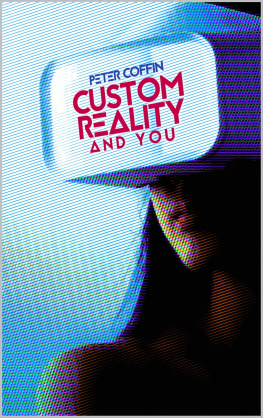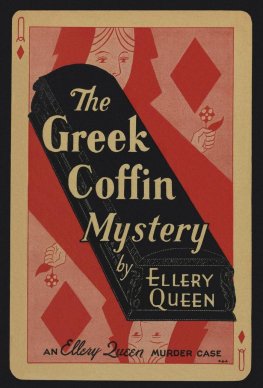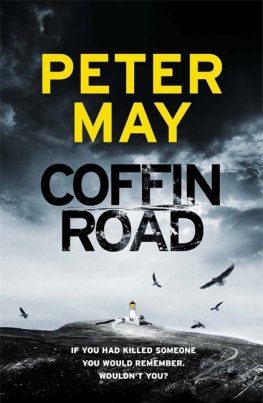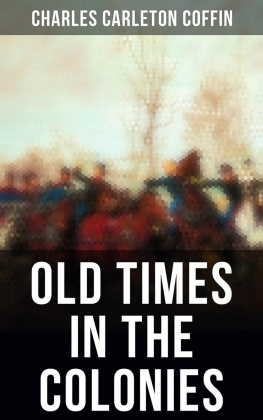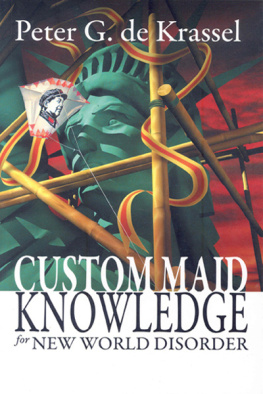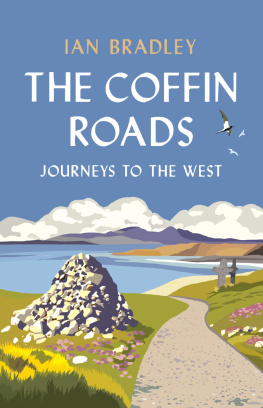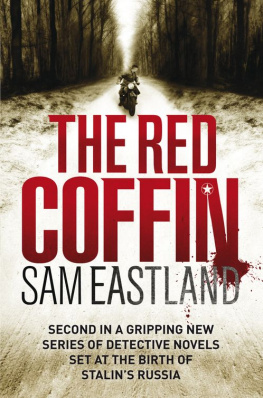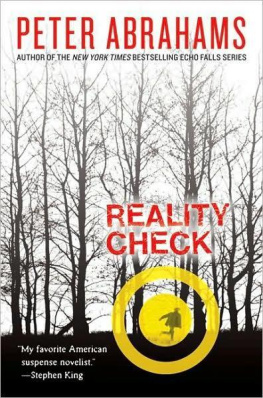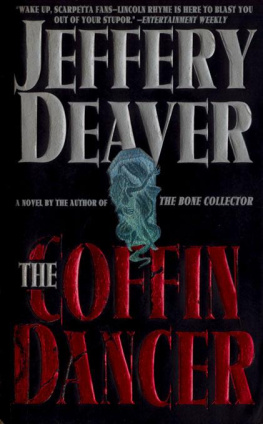Custom Reality and You
PETER COFFIN
Copyright 2018 Peter Coffin
All rights reserved.
ACKNOWLEDGEMENTS
A massive thanks must go to everyone who made this book even remotely possible. To my patrons, whose support is utterly vital to have the time to do this. To friends who have listened to endless rambling and offered feedback. To Penelope Iremonger, a gracious and detail-oriented editor who brought the book up several notches on the dial, as well as Oliver Thorne for the extremely helpful notes. To my parents, Joe and Carol, for raising me to think critically and for their love. To my children, Harrison and Gemma, for making it very hard to write a book, but being great sources of joy and inspiration. Finally, thank you to my beautiful wife and partner, Ashleigh, for your intellect, your conversation, your time, your love, and your patience.
1. INTRODUCTION
E ither I was an artistic genius, or my art teacher was a bit lazy. My money is on the latter. Older teachers tend to come from a tougher time, or at the very least, view themselves as such. They may have lived through Vietnam or a World War, and they may have even directly dealt with the horrors of those conflicts. I cant say Ive experienced anything like that, though there are young people who have, but it seems like they would be hell. Teachers that either directly or indirectly saw hell were more likely to be tougher on students.
Though my art teacher was old, she went pretty soft on us. She also really liked Picasso. People only needed about a third of the time she would allot to complete a project and when we were done, we were allowed to do just about whatever we wanted until the deadline. She was a nice person and very encouraging to everyone. I would say it was a good experience for me. A light workload and a legitimately supportive teacher make for a class made up mostly of students who dont rush and actually try to do well.
I had art in my second class period of the day, after homeroom/advisory/whatever your generation calls it. So, if I was not working on a project in my second hour, I had two hours to not think that hard. Which is good, because I was often up until 4am playing video games, which isnt smart but is relatable!
Anyways, I had an hour to take it very easy followed by an hour to take it pretty easy. At this point you should probably discard the possibility that I am an artistic genius. I wasnt then and Im not now. It was at least a fun class, though.
If 9/11 hadnt happened while I was in art class, that would be all there is to my memory of it.
To be clear, the first plane hit about fifteen minutes before second period art. They had a TV set up before 9am, though, when class started. Upon walking in a minute or two before class officially started, I didnt understand what was on the screen. By 9:03am, more students were in the classroom than were supposed to be. Theyd been filing in because it was one of the only classrooms with a television, and it was very clear something very big was happening.
The next fifteen minutes of the broadcast were intense. The channel we were watching had a close-up of the first tower burning when the second plane hit at 9:03. So, we didnt actually see it live, but the anchors were narrating the scene. The one talking kind of trailed off and the other let out an oh my God! After a moment of regaining composure, they noted there was what appeared to be another plane hitting the second tower.
Another fifteen minutes passed and it was 2003. We all aged about two years in that fifteen minutes, and I was no longer in art class. I was starting a program at the local community college that would last just a bit less than twelve minutes before I dropped out. Another war in Iraq was underway and health savings accounts were the hip new thing. Everything was totally normal. For sure.
Not so much. To many of us, reality was changing, fracturing further beyond the borders of its latest traumatic wound. Personally, that fracture lead me to heavily question my role as someone shortly entering adulthood in America. What was the American Dream? Why do these people hate us? Were just normal people living our lives What did we do to them? It made no sense to me, and for good reason. I didnt understand reality.
I wasnt the only one. From the liberals torn between capital and their own morals to the conspiracy theorists, reality was behaving like a cracked windshield that you dont get replaced because you can definitely still see!
In any case, its 2018 and were still taking the side roads to avoid getting a fine. This doesnt work forever, though. Weve gotten one before and with many broken reality windshields. Weve caved and replaced it more than once. This particular windshield had been mostly intact for several generations, though, and we were beginning to think that would be the one that protected the inside of our car from the friction of moving air forever.
9/11 changed each of our individual realities in different was, and cemented the Middle East as an ongoing topic of discussion for reasons (I can say that, Im a millennial). I want to quickly summarize a principle that has, mostly outside the view of our everyday lives, driven a large fraction of the sweeping changes in the 20th century:
If you have oil, we will come democratize your ass with some serious freedom. Thats the military reality.
To accomplish this, the United States Armed Forces employ a wide variety of weapons. Some of them are autonomous, while others are piloted by kids in a military arcade where they get medals and PTSD, instead of tickets and pizza. One cant trade them in for prizes, either, and will constantly remember how one killed some people at a wedding when you try to sleep.
Do you ever think about this stuff? Doesnt it bother you that what I am describing is not even something anyone would dispute? Did it feel normal? Did it feel real?
I mean, aside from the arcade imagery. I am more than willing to acknowledge there arent a lot of arcades anymore, but I thought it made my point pretty well. Not everyone has read Enders Game, though that would have worked, too. The way we frame information changes the way we interpret it, which is something I want you to heavily consider as you read.
Not just this book. Anytime you read.
In January of 1996, someone said Google is a great name for a company and filed the paperwork. Almost 20 years later, they realized it was a bad idea and changed it to Alphabet, which is I guess a less bad name. Anyways, the company created an unprecedented search engine that I wont try to make sound cool because its a search engine. It was still quite impressive, though. Instead of ranking pages based on the number of times it mentioned keywords (as its competitors did), it checked the amount of times a website was linked elsewhere.
That is to say, if you searched butt, it figured out how many times pages containing the word butt linked to each other and ordered the results based on this. If something got linked to more, it was more likely to be useful. In theory, this discouraged gaming the system. Previously, by simply making a page with nothing but 100,000 instances of the word butt, that page would be determined relevant to the word butt. But checking backlink volume supposedly discouraged tag loading and required a page to be connected elsewhere to be relevant. You supposedly couldnt control how many other pages linked to you. Challenge Accepted .
People figured out that if they made multiple websites all over the place linking to the website they want to rank, it would rank. Google kept trying to develop new ways to rank that were less easy to manipulate, but in the end people always manipulated them. People like the idea of ranking well; its how you win. Winning is supposedly important in life, and you cant win if you dont play.

